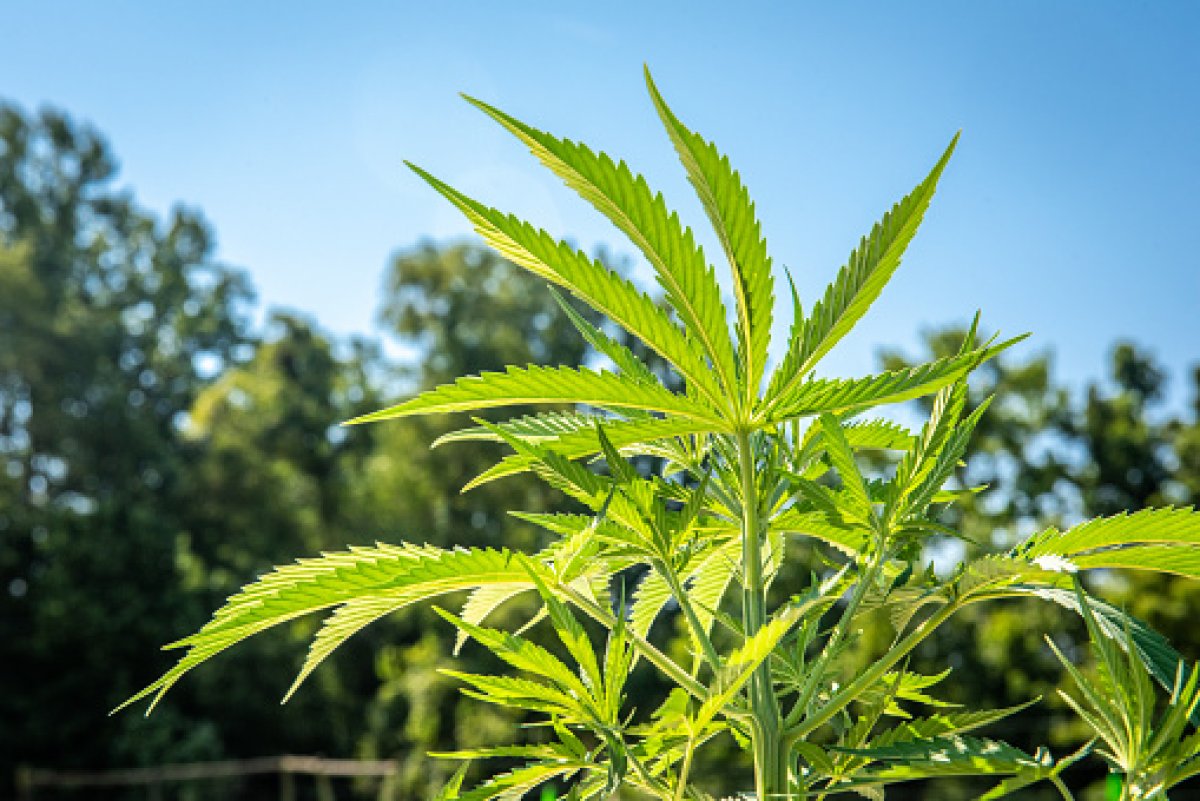The legalization of marijuana varies drastically between states, with some lawmakers approving its use entirely, others allowing its use only for medical conditions, and some still punishing possession of the drug by a prison sentence.
Thirty-eight states currently have it legalized for medical use, with 24 permitting recreational use, allowing many Americans to have access to marijuana, also known as weed, in one way or another if they are over the age of 21.
While it is still illegal on a federal level, President Joe Biden has made it clear that his administration intends to pursue decriminalization during his time in office. Whether this is likely ahead of the looming election, however, appears questionable.
Since Colorado and Washington's legalization of recreational marijuana in 2012, 22 other states, and Washington, D.C., have slowly amended their laws in favor of decriminalizing the substance.
Five more states could amend their laws soon: Wisconsin, Florida, Hawaii, South Dakota, and South Carolina.
Amid the arrival of "4/20" day—a celebration for cannabis smokers each year, on April 20—Newsweek looks at some of the states that could push ahead with legalizing use of marijuana in some way.
Florida
Florida voters will be able to decide if recreational use of marijuana should be legal in the state at the ballot in November.
Users will need to be 21 years or older to legally consume it. Medical marijuana is currently permitted.
Gov. Ron DeSantis has been one of the proposal's most vocal critics, saying he believes recreational use of the drug should not be legal in the state.
The law change will require a 60 percent approval for the amendment to pass when voters head to the polls in November.
Hawaii
A bill to legalize the recreational use of marijuana for adults in Hawaii was approved by the House Consumer Protection and Commerce Committee in March, raising hopes that laws could be extended from granting medical use.
The bill was earlier passed by the Hawaii Senate, and Gov. Josh Green, a Democrat, has indicated he would sign the bill into law once the House passes the second version.
The law would specifically allow anyone aged 21 and older to possess up to 1 ounce of marijuana and up to 5 grams of cannabis concentrates. Hawaiians would also be able to possess their own produce—up to six plants and up to 2 pounds of harvested marijuana.
It would also expunge the criminal record of past convictions related to cannabis possession.
South Dakota
South Dakotan law changes are less advanced down the legislative path than other states on this list, but campaigning to legalize recreational use—as well as the already legal medical use—remains vocal.
The state has tried several times in the past to achieve this, including a 2020 election ballot from voters approving the law change. But the South Dakota Supreme Court shut down the approval as unconstitutional a year later.
Voters then rejected another initiative in 2022. Now campaigners are working again to put the question to the electorate in November, requiring almost 18,000 signatures by May.
Wisconsin
At the start of the year Wisconsin appeared the most likely of any state to decriminalize medical marijuana, but a Republican bill fell flat ahead of an official vote.
The state bill was being considered to legalize use of the substance, but this would have been limited to severely ill people and would only be dispensed from five locations around the state. It would have also ruled out the legalization of smokable marijuana.
Leaders of the Republican-controlled Senate and state Assembly have largely supported the legalization, while Democratic Gov. Tony Evers has also previously voiced support to permit medical marijuana.
Currently possession of the drug is illegal in Wisconsin. Depending on the quantity of the substance you are caught with, it is possible to go to prison or incur heavy fines.
Despite the bill failing, conversation of reform has still grown steadily—and, while the state may fall short of legalization this year, Wisconsin remains one of the most likely areas of the country to proceed with medical marijuana laws.
Announcing the bill was effectively dead earlier this year, however, Assembly Speaker Robin Vos did give legalization supporters hope when he announced a public hearing to build support for passage next session would ensue later this year.

South Carolina
The South Carolina Senate passed a bill in February to allow the use of marijuana and related products for medical needs. But the bill has now sat in the state's House of Representatives for two months with little hope of being debated on the floor.
State lawmakers will need to get a move on, with just weeks left before the House adjourns. Anything that does not make it to the House will have to be proposed again next year.
This has been the case for several years, with an almost identical bill dying in the House in 2022. Many state senators have been working for almost a decade to change the law.
It would still be illegal to smoke the drug or use it recreationally under the new law. Patients could instead use vaporizers or patches to gain the medical benefits.
Any use of cannabis is currently illegal in the state and can carry a fine of up to $1,000 and even 30 days to six months in jail.
The recreational use of marijuana is legal in 24 states, and Washington, D.C., as of April 2024. While jurisdictions differ on the legal quantity allowed for legal possession, almost half of U.S. states have now approved its use.
These include: Alaska; Arizona; California; Colorado; Connecticut; Delaware; Illinois; Maine; Maryland; Massachusetts; Michigan; Minnesota; Missouri; Montana; Nevada; New Jersey; New Mexico; New York; Ohio; Oregon; Rhode Island; Vermont; Virginia; and Washington.
Other states have pushed ahead with legislation approving the substance's use for medical conditions. While the laws vary, these states include: Alabama; Arkansas; Kentucky; Louisiana; Mississippi; New Hampshire; North Dakota; Oklahoma; Pennsylvania; South Dakota; Utah; and West Virginia.
Marijuana is effectively illegal in the remaining 11 states: Georgia; Idaho; Indiana; Iowa; Kansas; Nebraska; North Carolina; South Carolina; Tennessee; Texas; and Wyoming.
Those requiring medical use can still access synthetic or CBD products in the majority of these states however.
Uncommon Knowledge
Newsweek is committed to challenging conventional wisdom and finding connections in the search for common ground.
Newsweek is committed to challenging conventional wisdom and finding connections in the search for common ground.
About the writer
To read how Newsweek uses AI as a newsroom tool, Click here.








